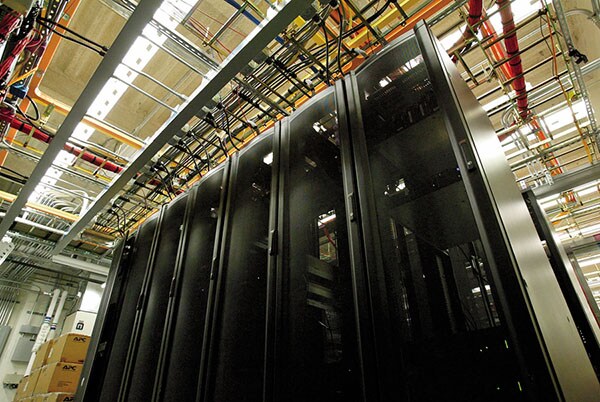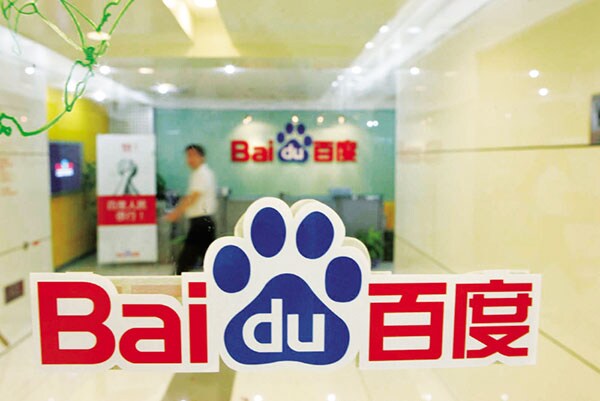The World's 100 Most Innovative Companies
Companies suffer when the boss comes up with all the new ideas. Shrewd leaders build organisations that think for themselves


Amazon isn’t an easy place to work. Its managers set steep goals, scrimp on budgets and expect long hours. But there aren’t many better places to be employed if you like the messy work of coming up with new ideas, because its billionaire-founder, Jeff Bezos, has made that a priority for everyone and in so doing has avoided the usual curse of having a dynamic and creative founder at the helm.
“I encourage our employees to go down blind alleys and experiment,” says Bezos. “We’ve tried to create tools to reduce the cost of doing experiments so that we can do more of them. If you can increase the number of experiments you try from a hundred to a thousand, you dramatically increase the number of innovations you produce.”
In our work over the last 10 years with business leaders, we’ve identified an interesting pattern. On average, creative leaders can increase a company’s innovation capacity, but having someone at the top who is too much of a genius can be dangerous for the organisation because that may squelch others’ skills and ideas.
According to more than 1,000 assessments we gave, we’ve noticed that 10 percent to 15 percent of the most innovative leaders in the world (based on others’ evaluations of their skills) don’t bother to encourage the people around them to innovate as well. These leaders often believe their ideas are so much better than their colleagues’ that they see little value in building talent around them. Many also lack the patience required to give others the chance to develop and deliver their ideas, so they do the work alone. This can be okay in the short run but disastrous over time. Employees stop coming up with ideas their creative muscles atrophy. This can pose a serious threat to a company’s performance if and when a highly innovative leader leaves, especially if that person is famous.
Investors started fretting about Apple’s ability to come up with big new ideas even before Steve Jobs died in October 2011. In the last two years Apple’s innovation premium (market capitalisation less the net present value of future revenue from existing products and services) fell from 50 percent to 22 percent. The company dropped from No 5 on our list in 2011 to No 79 this year. Apple might continue to change the game without Jobs, but investors have voted with their feet.
The same scenario happened at Starbucks. Its CEO, Howard Schultz, left that job in 2000. The company’s innovation premium remained a healthy 45 percent through the next year, but several years later that was down to 11 percent. Schultz’s return in 2008 restored the coffee chain’s creative lustre, and today its premium stands strong at 41 percent, making it one of the top 20 on the list. Schultz’s presence makes a difference to investors’ expectations of Starbucks’s ability to innovate and grow.
The more enlightened leaders know the importance of building creative capabilities in others. As Salesforce founder Marc Benioff emphatically put it during a recent conversation with us: “I can’t do it all. I don’t have all the ideas. That isn’t my job. My job is to build a culture of innovation. That’s something that we try to enforce. We encourage it. We value it. We notice it. We compensate for it. We require it.” Salesforce, by the way, has been No. 1 on the Innovative Companies list three years running.
Lately Benioff has been acquiring innovators as well training them from within. He has spent close to $4 billion since 2011 buying smaller software firms. “I’m willing to acquire a company that might not have a lot of revenue but has a lot of innovation.” He added, “We’ll take innovation any way you can give it to us… I don’t care if it’s my idea, an employee’s idea, a competitor’s idea, a partner’s idea or some other associate’s idea.”
Benioff spends most of his time these days with customers, and he’s encouraging his team to do the same, getting new ideas from the likes of GE, Bank of America, Toyota and Philips. He admits, though, that strengthening this ability in others while he’s still present is challenging and that whatever “innovation capital” he has built up over time cannot be handed off to someone else. Whoever ultimately takes his place will need to earn his or her own capital.
Jeff Bezos told us he thinks Amazon will be a long-term innovator because he’s made it part of everyone’s job. A lot of big companies appoint a chief innovation officer Amazon has purposefully chosen not to. Bezos doesn’t want his leaders delegating that to anyone in particular. While Bezos has done many things to build an innovative culture, he emphasised three things that he thinks make the biggest difference:
First, he surrounds himself with people who have a creative track record. He requests all job candidates to tell him something they’ve invented: “Their invention can be on a small scale—say, a new product feature or a process that improves the customer experience—but I want to know that they will try new things.” He also looks for a combination of stubbornness and flexibility. “Even though these two attributes seem to be at odds with each other, I don’t think they are,” Bezos told us. “I want people who are stubborn about their vision of creating something new and valuable. I want them to be relentless on their vision but very, very flexible on the details of how to get there.”
Second, Bezos has radically decentralised the work of coming up with new products or services so that the majority of employees feel like it is expected of them. Most employees are given an innovation challenge on one of Amazon’s now famous ‘two-pizza teams’ (a team small enough that it can be fed with two pizzas). “Each has its own software developers, its own business people, its own design people and so on,” he explained. “I think that kind of decentralisation is important for innovation because your hands are closer to the knobs of what you’re trying to build.”
Third, Bezos teaches these teams how to experiment their way to innovations. “Experiments are key to innovation because they rarely turn out as you expect and you learn so much,” he told us.
Business leaders can never know how strong their company’s ability will remain to bring new ideas to market after they’re gone. It’s the biggest danger zone of all—not knowing what you don’t know until it happens. Until then the world’s best-run companies will continue to hone their skills at observing, experimenting and questioning the status quo.
Jeff Dyer is a professor of strategy at Brigham Young University and Hal Gregersen is a professor of innovation and leadership at INSEAD. They are co-authors of The Innovator’s DNA
How We Measure Innovation
Most innovation rankings are popularity contests based on past performance or editorial whims. Our method relies on investors’ ability to identify firms they expect to be innovative now and in the future. Companies are ranked by their innovation premium: The difference between their market capitalisation and a net present value of future cash flows from existing businesses (based on a proprietary formula from HOLT/Credit Suisse). To be included, firms need seven years of public financial data and $10 billion in market cap. (Facebook, for example, would be in the top 10 if we used only 2012 data.) We require a certain threshold for R&D spending, so banks don’t make the list. Nor do energy and mining firms, whose market value is tied more to commodity prices than it is to innovation. Big caveat: Our picks do not correlate with subsequent investor returns. To the extent that today’s share price embeds high-growth expectations, one might even anticipate returns to investors to be low, as these expectations may be difficult to meet.
1. Salesforce
Software US
LATEST 12-MONTH SALES ($MLN) $3,247
3- TO 5-YEAR EARNINGS GROWTH (EST) 27%
The cloud computing pioneer in sales software has been using its richly valued shares to snap up startups that do the same thing for marketing teams. In June, CEO Marc Benioff made his biggest buy to date, paying $2.5 billion for ExactTarget. “We’ll take innovation any way you can give it to us,” says Benioff.
2. Alexion Pharmaceuticals
Biotechnology US
SALES $1,324
EARNINGS GROWTH 25%
Other companies imitate Alexion’s focus on the
rarest of rare diseases, but its shares are up only
10 percent this year after quadrupling over the
previous four. Investors worry that governments
and insurers are starting to resist paying for its $440,000 drug, Soliris. Rumours have swirled over a takeover by Roche. Big hope: A drug for children born with severely damaged bones.
3. VMware
Software US
SALES $4,861
EARNINGS GROWTH 19%
Debuting on the list is the king of virtualisation, a software trick that copies applications and hard drives across many computers so they run faster and more reliably. It’s now deep into mobile.
4. Regeneron Pharmaceuticals
Biotechnology US
SALES $1,740
EARNINGS GROWTH 29%
Wall Street is convinced the drug industry is out of blockbusters, but Regeneron has found ways to create them and on a budget. Its adult blindness drug, Eylea, generated $850 million in its first full year, and sales are expected to jump 50 percent this year to $1.3 billion. Its R&D cost per drug is a mere $736 million, compared to $7 billion for Pfizer. (See story, p 86.)
5. ARM Holdings
Semiconductors UK
SALES $1,020
EARNINGS GROWTH 27%
ARM made such a winning blueprint for a low-power microprocessor that its designs are now in more than 90 percent of the world’s smartphones. The company earns $2 in pretax profit for every dollar it spends on R&D.
7. Amazon
Retailing US
SALES $66,848
EARNINGS GROWTH 35%
Founder Jeff Bezos is hiring but seeks only the inventive type. “Their invention can be on a small scale, say, a new product feature or a process that improves the customer experience, but I want to know that they will try new things,” Bezos tells Forbes.
8. Intuitive Surgical
Medical Devices US
SALES $2,337
EARNINGS GROWTH 15%
Its da Vinci robotic surgical system translates a surgeon’s hand movements into more precise manoeuvers inside the human body. It slipped from No. 3 last year as the US market proves a struggle, with hospitals cutting back on expensive new equipment. Regulators are also surveying doctors amid accusations that Intuitive’s robots are linked to patient deaths. Investors have pushed shares down
20 percent since 2012.
9. Rakuten
Retailing Japan
SALES $5,571
EARNINGS GROWTH 37%
Rakuten is battling Amazon in its home market of Japan but is also taking the fight to Amazon’s turf by beefing up its presence in the US operations through Rakuten.com (formerly Buy.com). Its Kobo ereader, designed in Canada, leads in several countries, but the product is not yet profitable after a setback from its dissolved partnership with the Borders bookstore. 10. Natura Cosmeticos
10. Natura Cosmeticos
Personal Care Brazil
SALES $3,206
EARNINGS GROWTH 15%
Natura, founded in 1969 by billionaire Antonio Luiz Seabra, is Brazil’s largest cosmetics company and was the first there to make eco-friendly products central to its lineup. Some 40 percent of its revenue come from new products. Its research operation runs lean, scouring the world for new ingredients and working with university researchers it can learn from for free. It has won high marks for using normal women, not supermodels, in its ads.
For the full List of The 100 Most Innovative Companies
First Published: Sep 18, 2013, 06:42
Subscribe Now